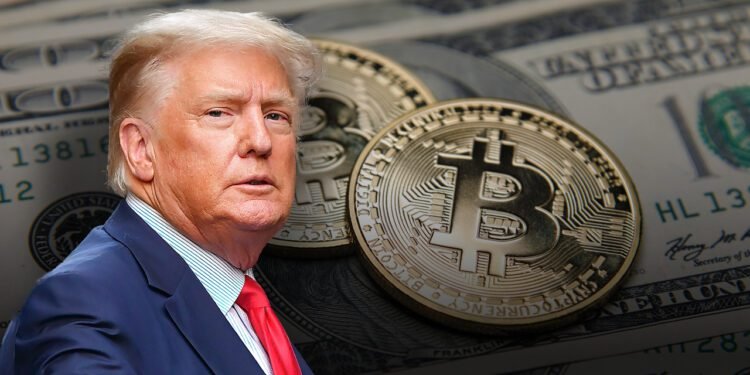In 2016, Ruja Ignatova, a Bulgarian-born German businesswoman, addressed an enthusiastic crowd at Wembley Football Arena in the United Kingdom.
With passion, she declared, “OneCoin is on course to becoming the world’s biggest cryptocurrency so everyone can make payments everywhere!” She promised that it would surpass Bitcoin, claiming that nobody would even remember Bitcoin in the years to come.
By then, British investors had already poured close to €30 million into OneCoin. Events like the one at Wembley only fueled the frenzy, encouraging more people to invest in what appeared to be a golden opportunity.
Many of these investors, inspired by the massive success of Bitcoin—a decentralized digital currency that generated huge profits for early adopters—did not want to miss this new wave. Between 2014 and 2017, individuals from Hong Kong, Pakistan, Canada, and even Palestine collectively invested over €4 billion in OneCoin.
However, in 2017, alarm bells began ringing. Frustrated investors, unable to convert their OneCoins into cash, gathered in Lisbon, Portugal, seeking answers. They expected Ignatova to address their concerns. She never showed up.
Since then, international agencies, including the FBI, have launched investigations to locate the elusive “Cryptoqueen.” But who exactly is Ruja Ignatova, and how did she orchestrate one of the most elaborate cryptocurrency scams in history? Let’s start from the beginning.
In 2014, Ignatova partnered with Karl Sebastian Greenwood to create a cryptocurrency they named OneCoin. At first glance, it seemed like any other digital currency. Typically, cryptocurrencies rely on a decentralized ledger known as a blockchain to record and verify transactions. This ensures transparency and removes the need for oversight by a central authority.
OneCoin, however, operated differently. Investors were required to purchase membership packages ranging from €140 to €118,000. The more expensive the package, the greater the potential rewards. Each package included educational materials on cryptocurrencies, trading, and investing, which OneCoin claimed to be its core business. Along with the courses, investors received tokens to acquire OneCoins.
These OneCoins could supposedly be exchanged for cash on the company’s private platform. Investors dreamed of buying luxury items like Gucci bags, Lamborghinis, and even villas, believing their OneCoins’ value would rise as demand increased. This promise created a dazzling “get-rich-quick” allure.
But there was another layer to the scheme. OneCoin incentivized members to recruit friends, family, and acquaintances into the network. For every new member brought in, existing investors earned a commission. This multi-level marketing strategy rapidly expanded OneCoin’s reach. Established marketing agencies, particularly in Europe, played a crucial role in promoting the scheme. In the Netherlands, one marketer reportedly earned €90,000 in a single month.
Ignatova’s impressive credentials—an Oxford degree, a PhD from Konstanz, and a stint at the prestigious McKinsey & Company—added legitimacy to the operation. Investors trusted her vision, convinced that OneCoin was a legitimate business.
But cracks began to appear. Shortly after the Wembley event, Bjorn Bjercke, a blockchain expert, received a surprising job offer. A recruitment agent approached him with a lucrative package to develop a blockchain for OneCoin. The offer revealed a shocking truth: OneCoin had been operating for nearly three years without a blockchain.
Bjercke exposed the scam, triggering widespread scrutiny. Cryptocurrency enthusiasts discovered that OneCoin’s value was not determined by supply and demand but was manually set by Ignatova and her team. Even the educational materials provided in the packages were mostly plagiarized.
Despite mounting evidence, many investors remained loyal to Ignatova. Governments worldwide, including those of Bulgaria, Finland, and Norway, issued warnings about OneCoin. In 2016, Hungary’s Central Bank labeled it a pyramid scheme. Still, the faith in Ignatova persisted.
The tipping point came in 2017 when OneCoin’s private exchange, xcoinx.com, abruptly shut down under the guise of maintenance. This platform allowed investors to convert their OneCoins into cash, and its closure left them stranded. The exchange never reopened.
The Lisbon event, where Ignatova was expected to clarify the situation, became a defining moment. She vanished without a trace, leaving Greenwood and other accomplices to face legal consequences. In 2023, Greenwood received a 20-year prison sentence and was ordered to pay $300 million.
As for Ignatova, rumors of her death surfaced recently. Investigators suspect a Bulgarian drug lord, once hired as her protector, may have killed her. However, without concrete evidence, the FBI continues to list her among its top 10 most-wanted fugitives.
Is Ruja Ignatova truly dead, or has she staged her disappearance to escape justice? Could she be living a luxurious life on a hidden yacht, enjoying the billions she swindled? The mystery remains unsolved, leaving the world to wonder about the fate of the “Cryptoqueen.”

 Business
Business INDIA
INDIA Stocks
Stocks




